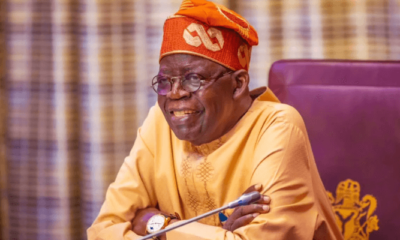Breaking News
UPDATE: Unforgettable moments of Qatar 2022 World Cup
Abuses were well chronicled in the media, and to the very end of the tournament, rights groups called on FIFA and Qatari officials to provide compensation for the many workers who endured hardship, even death, due to their labor.

At the start of every World Cup tournament, the FIFA president usually says something like, “this will be the best World Cup ever.” True to form, FIFA’s leader, Gianni Infantino, said exactly that during his pre-tournament briefing at the Qatar National Convention Centre last month.
Given all the uncertainty, protests and angst about holding this World Cup in Qatar, it seemed like a stretch.
But the competition on the field was stellar. From the surprises, shocks and upsets in the group stages to the excitement of the knockout rounds – and arguably the best final ever – this World Cup has excelled.
Argentina’s thrilling win over defending champion France in a penalty kick shootout gave star Lionel Messi the one trophy that he had not been able to capture during his lengthy career.
That was how the World Cup ended. But it’s not how it began. For that, one has to go back a dozen years.
From start to finish, a World Cup of controversy
Controversies stuck to this World Cup from the moment, in 2010, when then-FIFA president Sepp Blatter opened an envelope and announced the voting result for the 2022 tournament.
“Qatar!”
Members of the Qatari delegation hugged, but others immediately asked “Qatar?”
The U.S. government would later detail how Qatar won the bid through bribing members of FIFA, soccer’s international governing body. Allegations Qatar denied.
But in 2010, those asking “Qatar?” had more practical concerns.
Searing heat in the Persian Gulf nation during the World Cup’s traditional summer slot. No facilities or infrastructure. A conservative, autocratic government.
Qatar and FIFA officials dealt with the first two concerns – a first-ever World Cup shift to November / December for a cooler tournament; a stunning, 12-year transformation costing a reported $300 billion turned Qatar and its largest city Doha into a World Cup ready destination.
The other major human rights controversy that preceded and ran through this event was the treatment of thousands of migrant workers who essentially built the World Cup.
Abuses were well chronicled in the media, and to the very end of the tournament, rights groups called on FIFA and Qatari officials to provide compensation for the many workers who endured hardship, even death, due to their labor.
The officials noted recent labor reforms in Qatar, and insisted a framework already exists to help workers.
But in his closing news conference, FIFA president Gianni Infantino failed to commit to a compensation fund, when he was asked whether the governing body would share in its expected $7.5 billion in revenue from the tournament.
“We are defending human rights,” Infantino said, without explaining how that statement squared with the controversies that stuck to what he called, the best World Cup ever.
The shocks and surprises
The biggest surprise of the tournament, arguably, came on the third day in group play. Saudi Arabia shocked Argentina 2-1 in one of the greatest World Cup upsets ever. Messi is one of the finest to ever play the game – but one trophy had eluded him: a World Cup title. But the opening loss to Saudi Arabia ended up being just a speed bump. Argentina gelled to win the group, zip through the knockout rounds and win the final.
Another surprise came in the middle of the tournament – before a game. Portugal coach Fernando Santos shocked the sporting world when he didn’t put star Cristiano Ronaldo in the starting lineup for the last two Portugal matches. The 37-year-old Ronaldo has dazzled on the pitch for decades – but wasn’t his usual dominant self at this World Cup.
The United States makes this list too. After failing to qualify for the 2018 World Cup, the U.S. returned and did not lose a game in group play – and made it to the knockout round. But it would be another early exit with a round of 16 loss to the Netherlands.
The early exits (and, in some cases, very early exits) of traditional European powerhouses shocked many a soccer/football fan. Belgium didn’t even make it out of group play. Portugal, Spain and Germany all bowed out … and Italy didn’t even make this tournament. The biggest surprise of this tournament, Morocco, is covered just below.
While much has been written on Qatar’s human rights record, prohibitions of stadium beer and questionable awarding of the World Cup, once the tournament began it operated smoothly. Transit around the small country was easy – not to mention having all eight stadiums within an hour of each other was a fan’s dream. Past World Cups have required expensive plane trips between games.
The Atlas Lions roared
Morocco’s spirited and historic run to the semifinals will forever be part of this World Cup’s story. As the first national team from an African and predominantly Arab nation to make it that far, the Atlas Lions inspired millions of fans beyond their North African country.
As Morocco stormed through the tournament, winning its group and then notching knockout stage wins over traditional European powers Spain and Portugal, fans in Qatar wrapped in all things red and green made the term “cheering” seem way too tame. They sang. They chanted. They whistled at the opposition – have you ever heard 50,000 people whistling? The ears still are ringing.
And they roared. As their team on the pitch roared back, with its play.
In the end, Morocco’s run, highlighted by a defense that didn’t allow an opponent to score a single goal until the semifinals, ended against a stout and seasoned opponent – the defending champions from France.
But the run resonated in a major way
There have been 88 semifinalists in the history of the men’s World Cup — 85 have been from Europe and South America.
Morocco, is only the third semifinalist not from those soccer-power continents.
But as Moroccan coach Walid Regragui said during the tournament, his team’s breakthrough wasn’t a miracle. It’s the result of hard work.
And planning
Thirteen years ago, Morocco opened a national training center, the Mohammed VI Football Academy. It was a multi-million dollar investment that appears to have paid off in Qatar.
And an indication that while what happened at this tournament didn’t quite take down the sport’s world order, it represented plates shifting underneath.
Morocco, with this team and a growing pipeline, is positioned to prove Qatar wasn’t a one off. And as the next World Cup explodes from 32 teams to 48, traditional soccer outsiders are bound to be inspired. and emboldened to think with planning and work and, maybe a little magic, getting inside isn’t impossible.
First use of women referees
There’s always grumbling about referees — calls they made or didn’t — “no way was that offside,” to “that wasn’t a foul,” and, of course, “he just flopped.” But at this World Cup referees made news for another reason. For the first time ever, women officials were used at the men’s tournament. Six women – including Kathryn Nesbitt of the U.S. — officiated both on and off the field. And, an all-female crew, officiated the Germany/Costa Rica match.
The FIFA decision to use women referees happened in a country with restrictive women’s rights.
Saying goodbye
It may be the last World Cup we see Messi wearing an Argentina uniform or Ronaldo donning one for Portugal or Luka Modri sporting the red and white checkerboard for Croatia. For decades they each have shined for their countries at many, many tournaments and given countless fans joy (and sometimes heartbreak).
We also say goodbye to the three journalists who died while covering this World Cup. American sportswriter Grant Wahl — perhaps the preeminent U.S. soccer reporter — collapsed during the Argentina-Netherlands quarterfinal. An autopsy determined he died of an aortic aneurysm (a burst blood vessel).
ITV sports director Roger Pearce “passed away suddenly” last month and Qatari photojournalist with Al Kass TV, Khalid al-Misslam, “died suddenly” earlier this month.
2026 and beyond
The stage is set for 2026 when the U.S. will co-host the next World Cup along with Mexico and Canada. As mentioned earlier, FIFA is expanding the number of teams from 32 to 48. It’s not clear yet how the tournament will be organized or the format used to advance.
One thing is clear – it will be hard to top the 2022 tournament. But in four years, we bet FIFA will say that the 2026 World Cup will be the best ever.








